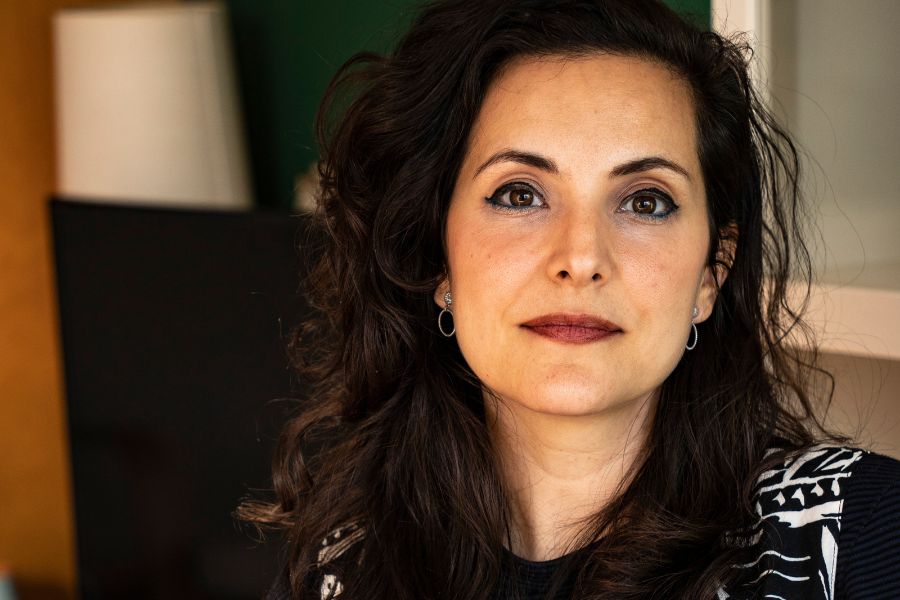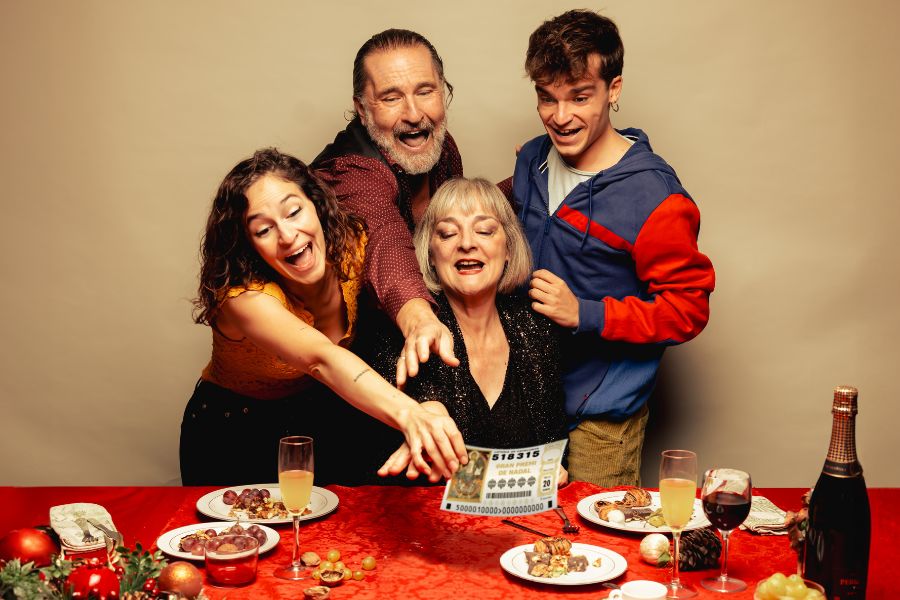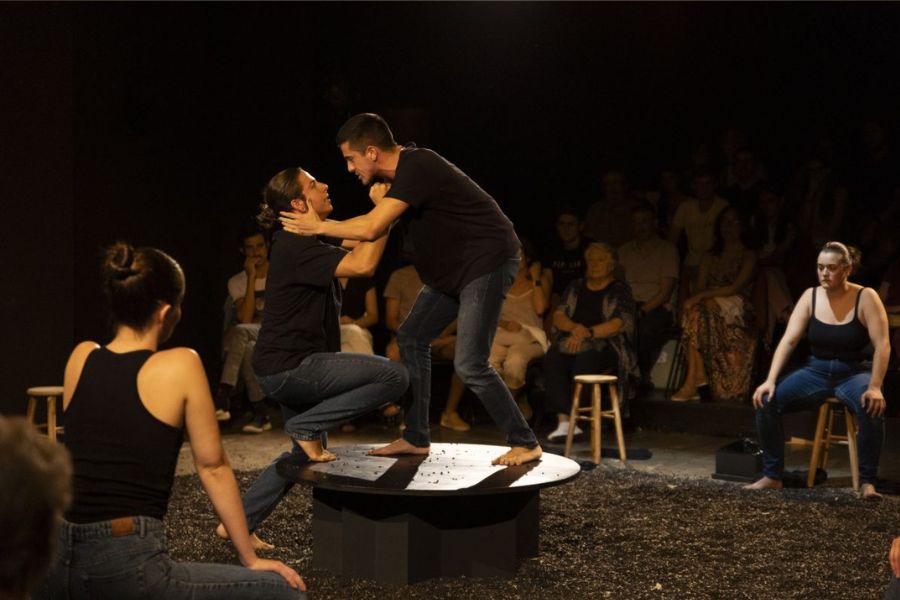Eu Manzanares: “We need to give real space to the voices of the working class”
This is the playwright, actress and director’s winter I Manzanares. There are three proposals signed by her that return to the city: Ours, The master and the sea i love to death. At the moment of effervescence of Manzanares, a residence is added to the National Dramatic Center of Madrid, which forces us to meet by video call.

Teatre Barcelona: Three shows on the billboard, and you’re in residence creating a new one. Can we tell you’re having a great creative time?
I Manzanares: This is a more difficult question than it seems. I’d say I’m in a good harvest time. so much Ours com The master and the sea they are texts I wrote a long time ago, even if they are programmed now. So, am I in a creative moment? Yes, because I am creating new things, but mostly I am reaping the fruits that I sowed a few years ago.
One of these fruits is Ourswhich can be seen this December and January at Espai Texas, but which, in fact, you premiered five years ago. Then it was your first boom as an author. Were you looking forward to it coming back?
Ours it was released on Christmas just before the pandemic, so we were partly lucky and partly unlucky. Luckily, the last performance took place a month before the lockdown and, therefore, many people could come to see the play. But we had a stack of bowling and planned features that fell through. What Ours coming back was something that had to happen.

Promotional image of ‘Lo nuestro’. Image: Sergi Panizo
Both a Ours as in Nessun Dormawhich you presented at Sala Beckett, you talk about a reality rarely present on stage: that of working-class families. We often see upper-class characters on stage, who experience their problems from a bourgeois perspective. Do you think other looks are missing?
It’s not that they’re missing, what’s missing is to give them space. In a society where the vast majority of people are working class, logic tells us that there should be many more first-person stories. Often, when trying to reflect the humble classes, I personally notice that it is not done from experience. There is a great deal of romanticization or condescension. We need to give real space to these voices. I want to think that little by little these spaces are being created. The thing is, we still have a long way to go and, in the end, the art world is very elitist and very closed. And I feel very privileged to have been able to enter a little bit.
A Nessun Dormayou talk about that.
Of course, because it’s my struggle, too. Sometimes I wonder if I still have the power to speak of a humble class if I have been able to enter this circle. It generates many contradictions for me. When you enter these dynamics of cousinsyou have to fight not to lose your essence.

Scene from ‘The Master and the Sea’ by the company Mar Vivir
Also this season resumes The master and the seaa work you wrote based on the true story of Antoni Benaiges, a Catalan teacher murdered in 1936 in the area of La Pedraja, in Burgos. This case has already been made into a film, and another theatrical version. How does your project come about?
A friend of mine, the Sergio Bernalwho is a documentary filmmaker and historian, is one of the people who discovered the story of Master Benaiges, fourteen years ago, and I always told him that it needed to be told. Right after OursI started to write The master and the seaand I started knocking on doors to be able to produce it. And, coincidences that happen in this profession, because the stories do not belong to anyone, precisely theAlberto Conejero and the Xavi Bobés they presented, that season, a very different work, but based on the same case. It was very frustrating. A couple of years later, I was called by Eolia to direct a final thesis on Interpretation. After a few sessions with the students I said, look, you know what? For this to stay in a drawer, let these people do it, who are young, who are eager. The surprise has indeed been that, all of a sudden, it has been successful that he has had There are eight in the scene, and they make about thirty characters, all together.

The Feliuettes in ‘Love to death’
The master and the sea will also be at Espai Texas in December and January, doing tandem with the functions of Ours. And, in January, he returns to Maldà love to deathwhich you directed and co-created with The Feliuettes, and which has received nominations for the Barcelona Theater Awards and the Butaca Awards. How different is working with a company than signing your own texts?
It’s different because when I write and direct, I can make all the decisions. All responsibility rests with me, whether it goes very well or very badly. However, what I like most is being able to do the whole process myself. Because then, while I’m writing the text, I can already begin to imagine how he will walk.
And now, what you’re doing here in the CDN, what kind of process is that?
I am writing the text myself and I hope to be able to direct it. The rest, for now, is all secret. I’m very chaotic in the creative processes, and I often change course a lot while I’m writing, so I prefer not to say anything about it until it’s more closed.
Do you have any other projects in perspective, as a director, actress or creator?
I don’t know if you can say a lot or a little, but if everything goes well, next season I will open the programming of a room with another new show.
More information, images and tickets at:










